|
I'm so excited to visit Bird in Hand bookstore for a medical humanities book talk, and to be in conversation with two academic all-stars: Carolyn Sufrin and Carole McCann. I'm also looking forward to visiting Dr. Nicole Labruto's "Science Studies and Medical Humanities: Theory and Methods" course at Johns Hopkins University. Nicole is Director of JHU’s incredible Program in Medicine, Science, and the Humanities and the kind coordinator of this visit. I'm grateful for her invitation and the chance to be in dialogue with this community.
0 Comments
Book launch invite! Join this incredible lineup of feminist scholars for a *hybrid* roundtable on themes addressed in my new book, Conceiving Christian America: Embryo Adoption and Reproductive Politics.
DATE: Friday, October 20th TIME: 3:30-5:30 pm ET. PLACE: Register for the zoom link here or join us in person at Purdue University. It feels fitting to be giving my first book talk to the ANSIRH community. I met with sociologist Carole Joffe in her ANSIRH office at the beginning of a summer of preliminary research on embryo adoption. Fifteen years later, I’m excited to share with them what I’ve learned. Anthropology is a slow science that I am grateful to practice in a fast-moving world. Click here to view the talk.
A personal dream was realized today when Rewire News--the only national publication exclusively dedicated to reporting on reproductive and sexual health, rights, and justice--published the first few pages of my book. Click here for a sneak peek!
This was one of the most exciting boxes to receive. Bookmaking was largely a digital experience between me and my computer, so it feels surreal to hold in hand the product of that effort. I noticed immediately the light green spine and watercolor texture paper for the cover, which I love. My pooch, Arrow, helped with unpacking.
I'm excited it's finally in the world and to share it with you! I spoke with journalist Sara Harrison about my research on embryo adoption practices and politics, which is featured in her recent essay in The Cut. Check it out!
My reflections on the art and ethics of erasing abortion law is the 'editor's pick' on Bioethics Today! Many thanks to Dr. Alyssa Burgart for her enthusiasm about the Doctoring Dobbs project. You can check out my essay here and follow Dr. Burgart on her 'Curious Bioethics' substack.
On the one year anniversary of the Dobbs ruling, I offer some reflections on the importance of being wary of white saviorism in post-Roe politics. The essay is featured by NYU Press's "From the Square" blog on a topic explored at length in my forthcoming book, Conceiving Christian America: Embryo Adoption and Reproductive Politics.
Check it out here! https://www.fromthesquare.org/being-wary-of-white-saviorism-in-post-roe-politics/ |
Archives
November 2023
Categories |
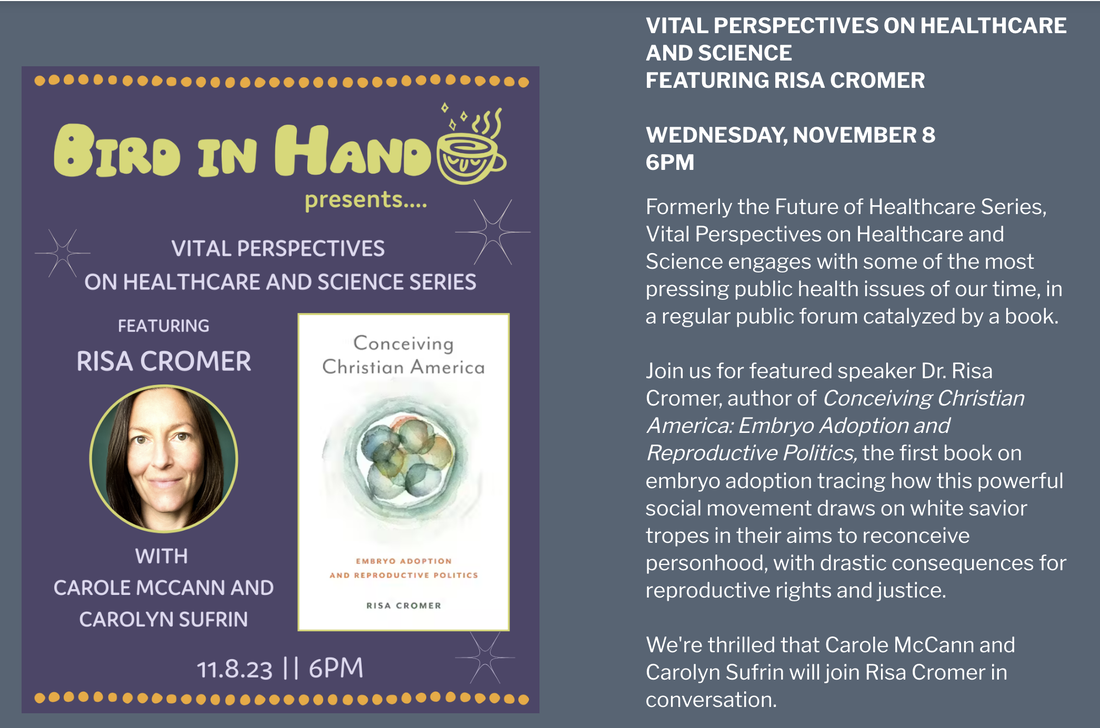
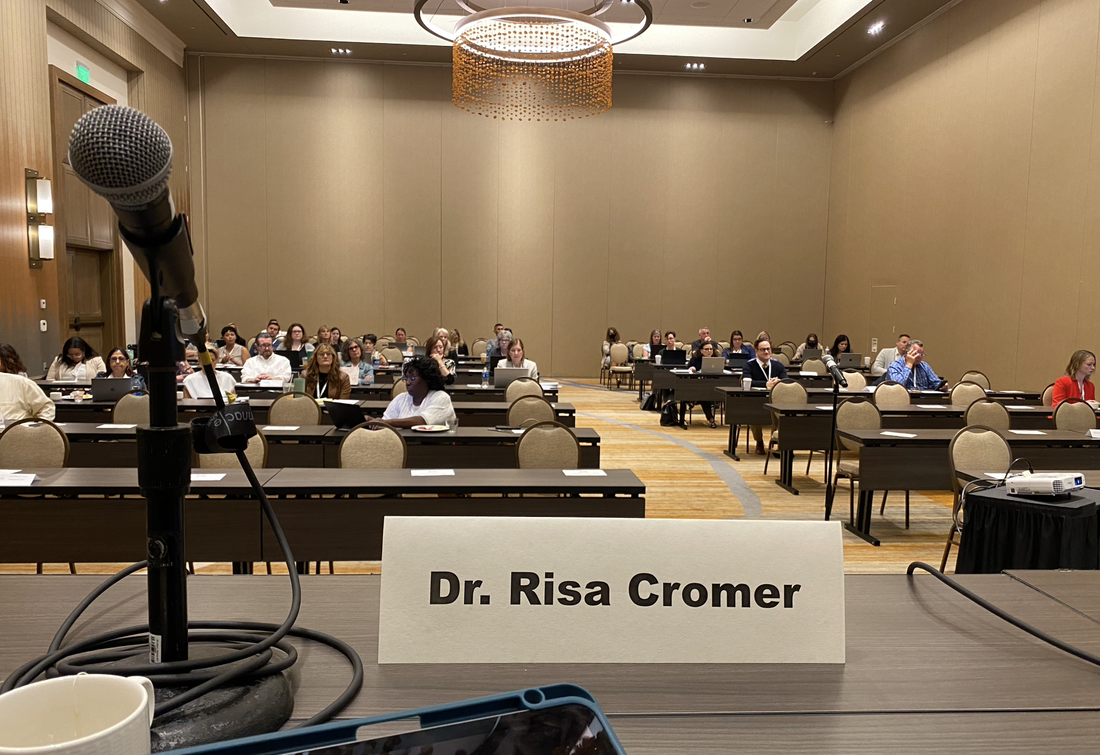
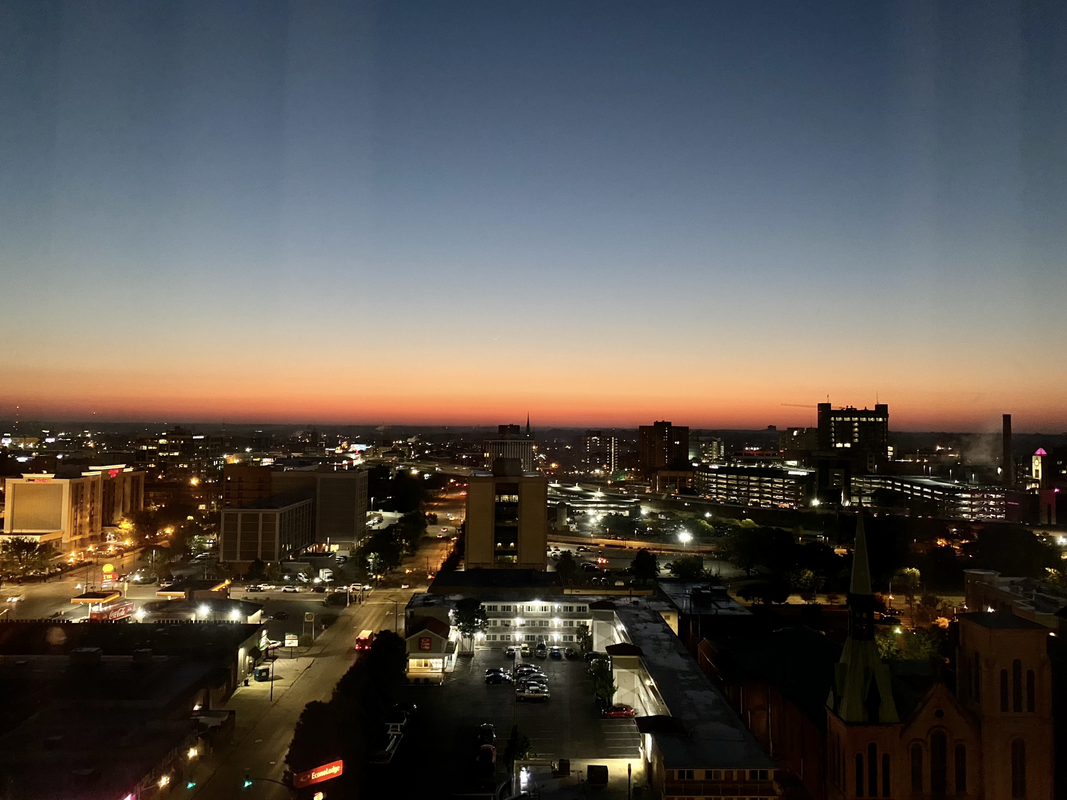
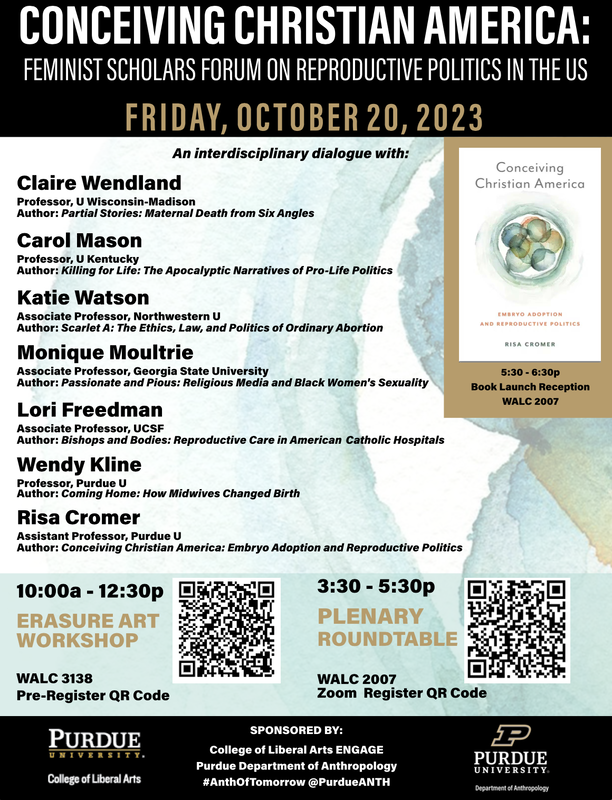
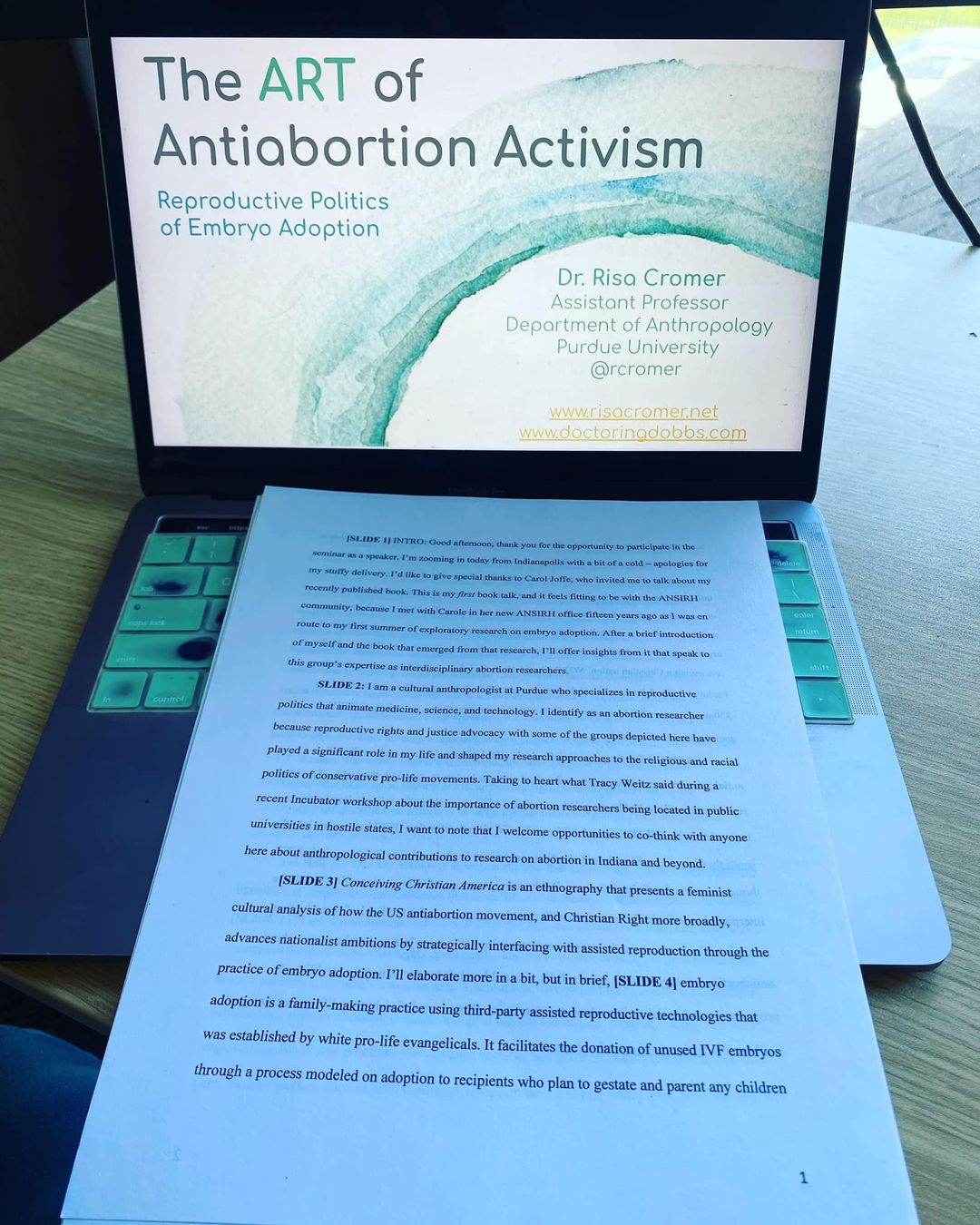
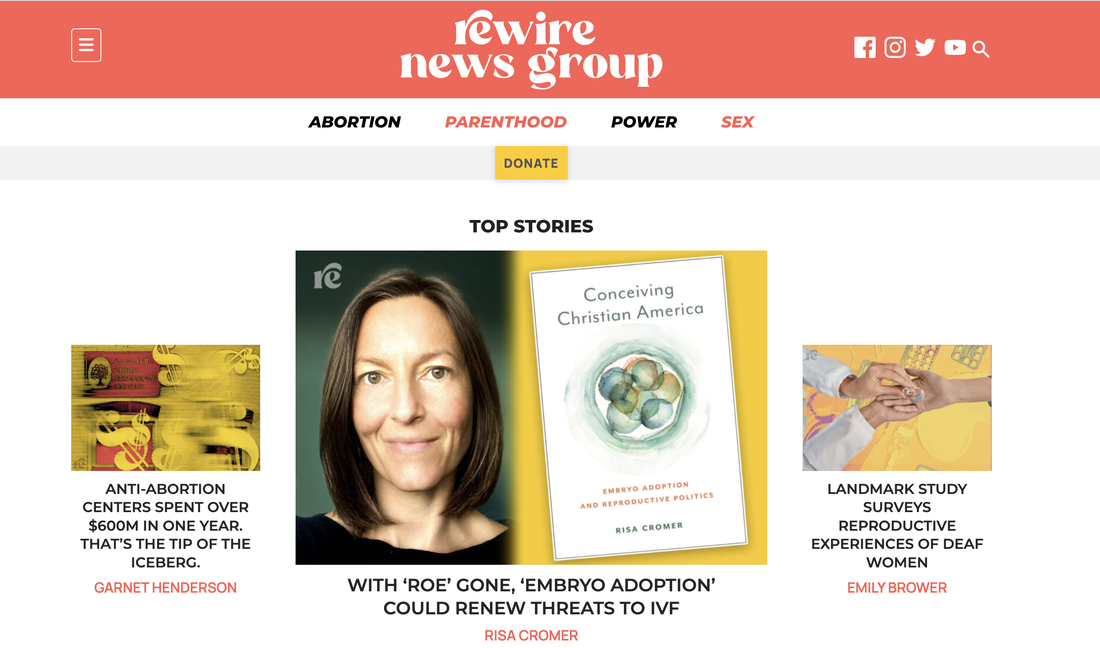
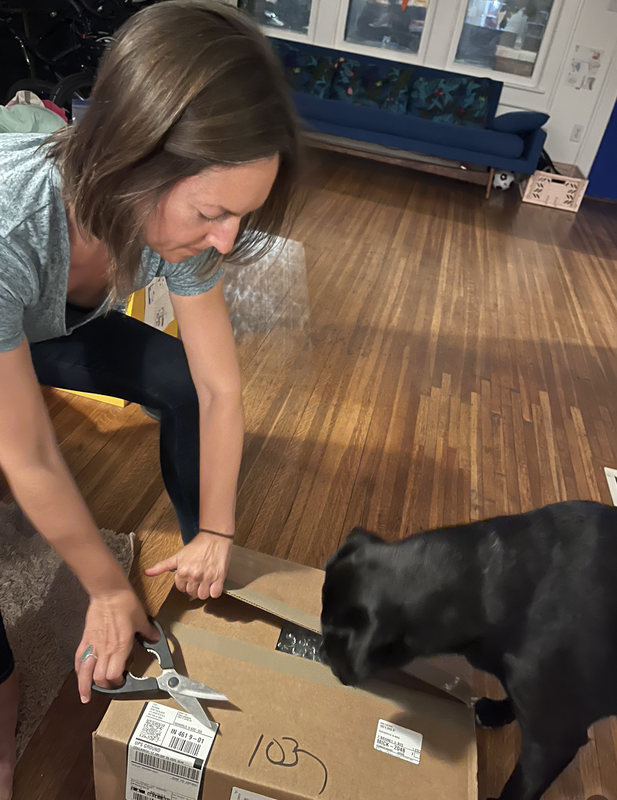
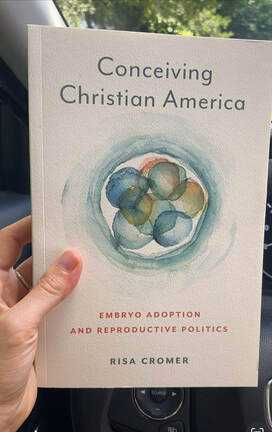
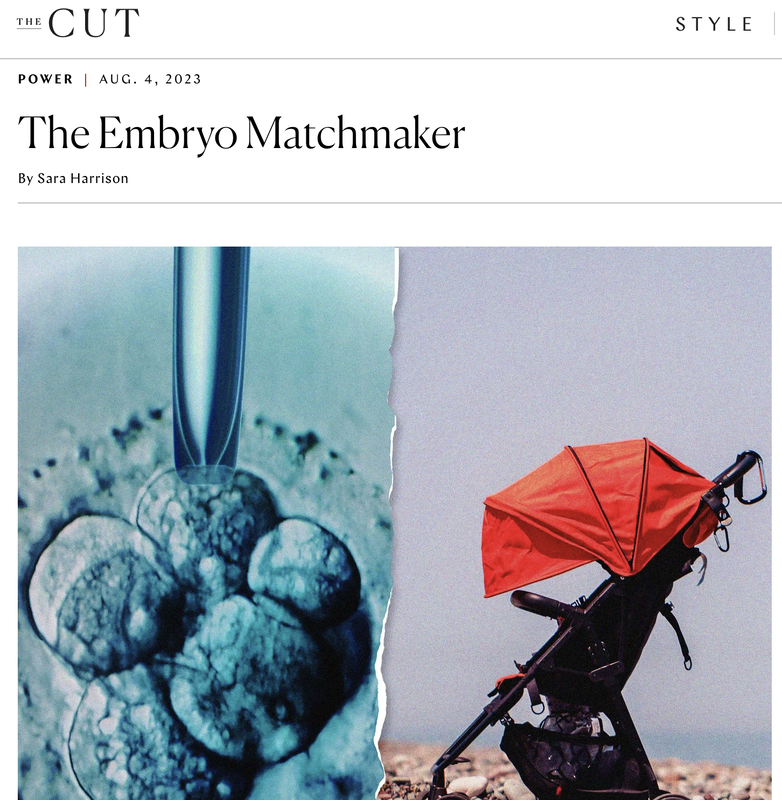
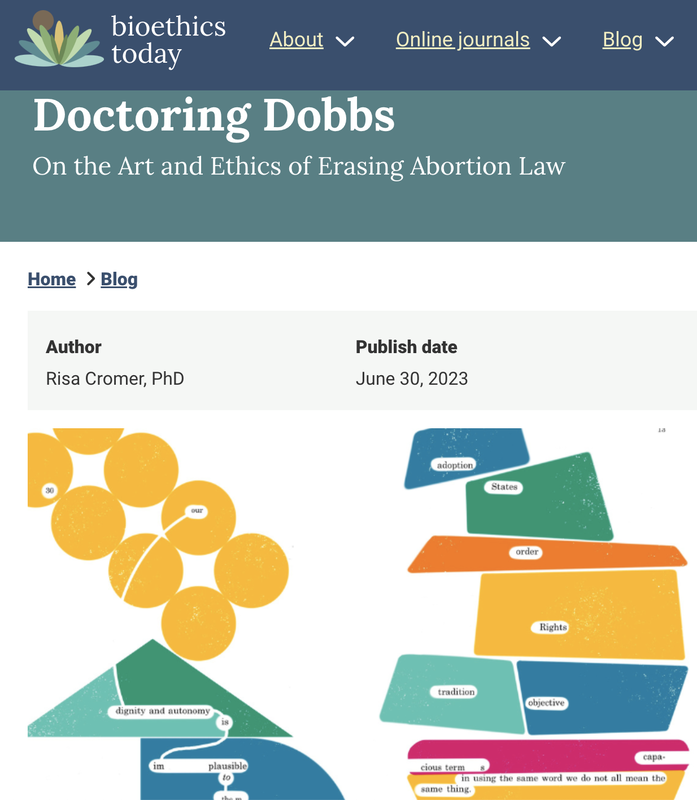

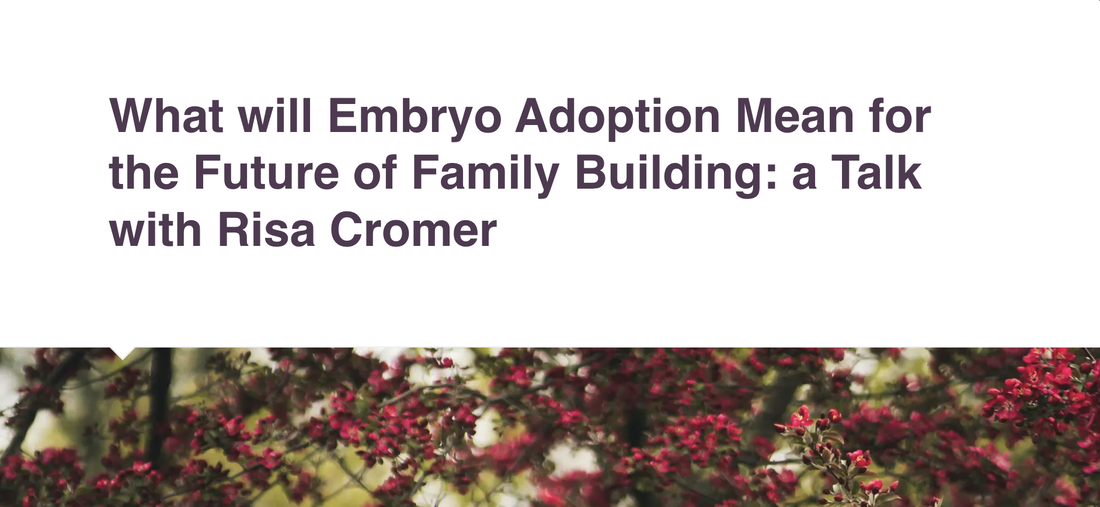
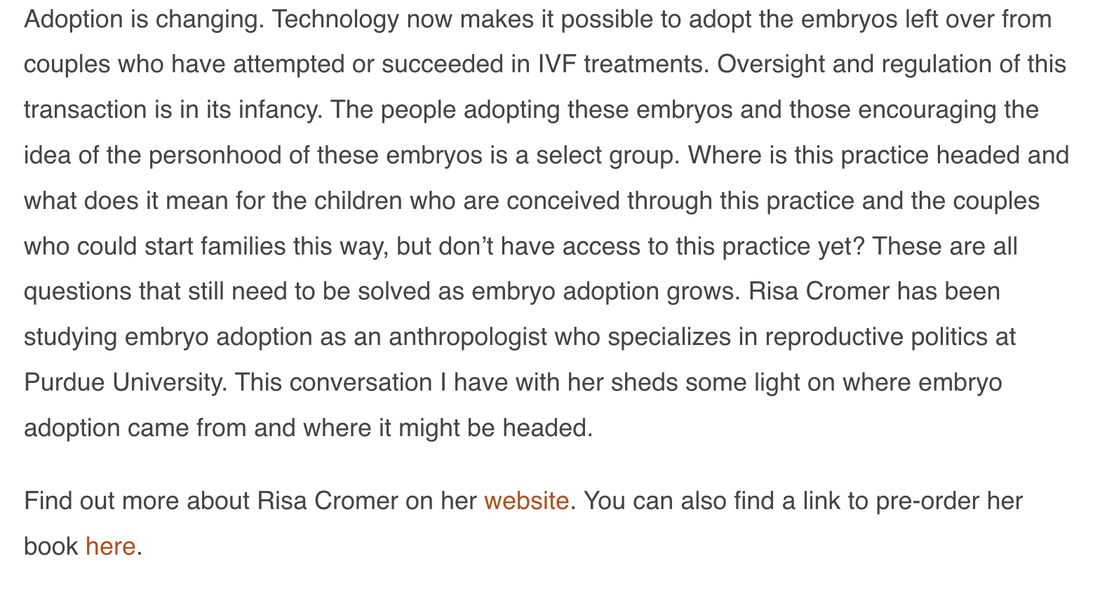

 RSS Feed
RSS Feed